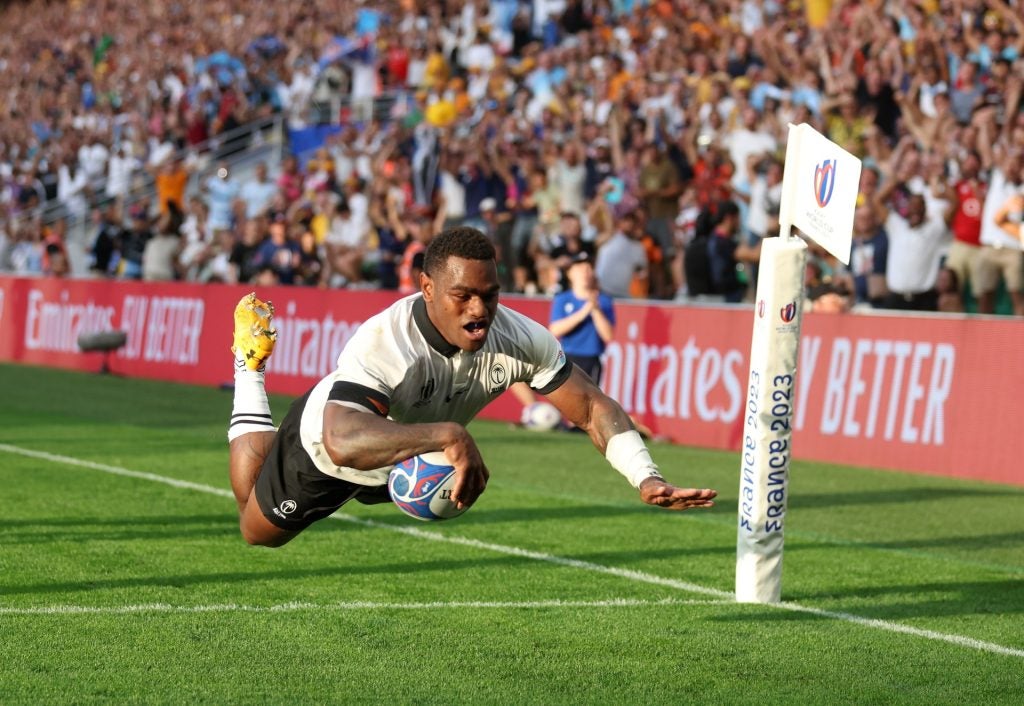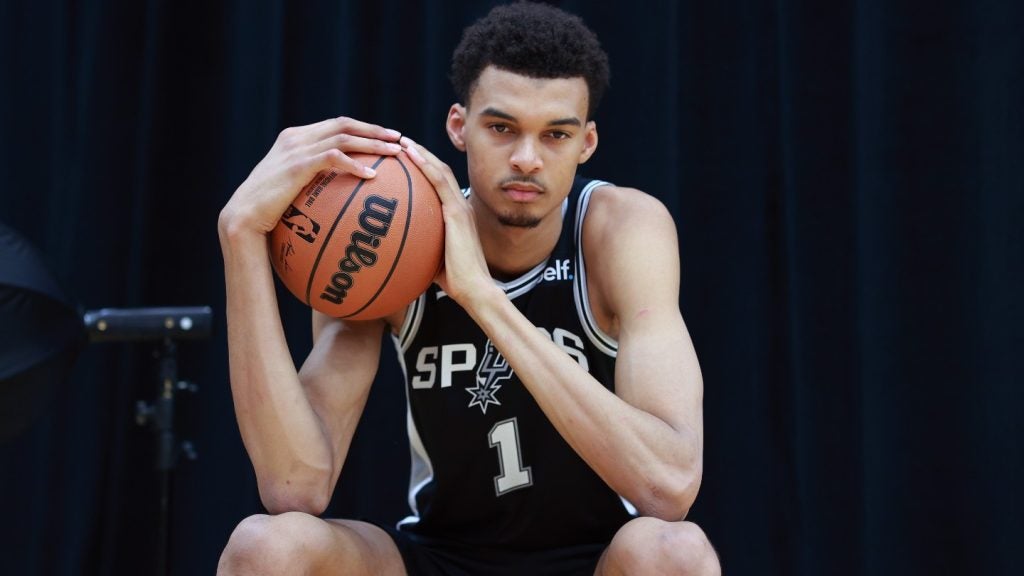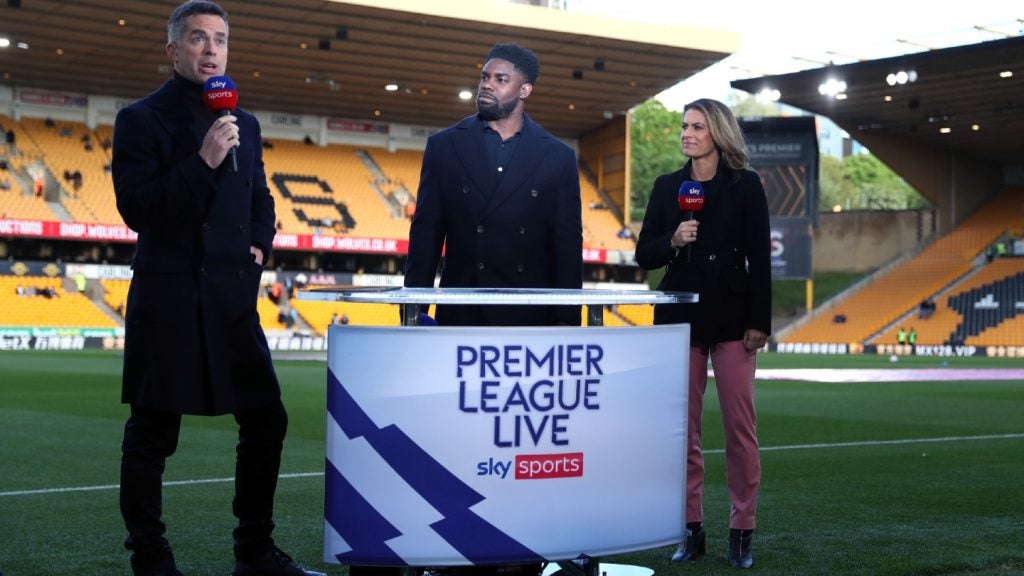
Sky Sports and BT Sport have maintained their grip on the Premier League TV rights in the UK. Sky Sports won the rights to four packages including 128 live matches, with BT Sport taking one, comprising 32 games. The latest deal of £4.46 billion ($6.2 billion) falls short of the previous agreement with the Premier League, when the rights were sold for a reported £5.14 billion in 2015.
The
broadcasters bid on a total of seven packages of fixtures, five of which
contain 32 matches a season and two 20 matches. This leaves two remaining
packages, with Richard Scudamore stating that the Premier League “will now
continue the sales process to deliver the best possible outcome for the
remaining packages of rights in the UK and throughout the rest of the world.”
Reports
suggest that the reserve price for the remaining two packages wasn’t met in the
first round of bidding. If correct, this could be a result of the Premier
League setting the price point too high – or the OTTs, who were expected to bid,
were in fact not interested at any cost.
Twitter,
Amazon, Facebook and Google have all bought rights or have begun to stream
major sports content in some way. However, if any of the OTTs were to secure
live Premier League rights in the UK, then it was always more likely that they
would look to secure one of the smaller 20-match packages because winning one
of the larger packages would have a huge number of strategic and commercial
implications.
Fans don’t want to see a goal flash on social media or receive a WhatsApp message from a friend 30 seconds before they’ve seen it for themselves
Firstly,
they would have to develop a platform capable of live streaming content to
millions of fans concurrently, a fundamental shift from the on-demand content
delivery they offer at the moment. The technical issues here revolve around
making the content truly live: the demands of fans mean they won’t tolerate
buffering and time lags on purported live content. Fans don’t want to see a goal
flash on social media or receive a WhatsApp message from a friend 30 seconds
before they’ve seen it for themselves, something NFL and DAZN encountered at
the back end of 2017.
How well do you really know your competitors?
Access the most comprehensive Company Profiles on the market, powered by GlobalData. Save hours of research. Gain competitive edge.

Thank you!
Your download email will arrive shortly
Not ready to buy yet? Download a free sample
We are confident about the unique quality of our Company Profiles. However, we want you to make the most beneficial decision for your business, so we offer a free sample that you can download by submitting the below form
By GlobalDataSecondly,
those that purchase Premier League rights in the UK are obliged to also produce
the content. This represents another new area of development for OTTs and
although they are likely to outsource production in order to compete they still
need to hit the ground running with a consumption experience for fans that is
comparable to the ultra-slick Sky Sports and BT Sport.
Thirdly,
these companies are truly global entities with a democratic approach to the
market place that they operate in. Securing one of the larger packages in the
UK could have led to pressure from other key markets to replicate the same
model. Whilst the financial clout of the OTTs isn’t up for debate, this would still
require a big reallocation of budgets and another shift in strategic direction.
Lastly,
in the back of their minds will be the companies who have gambled their
fortunes on Premier League football subscribers in the past, with the likes of
ITV Digital and Setanta going bust and ESPN deciding not to persist after one three-year
cycle.
Sports fans now expect far more flexible options when consuming content, paving the way for the OTTs to enter the market
That
said, there have been big advancements in technology and clear shifts in
consumer behaviour since ITV Digital, Setanta and ESPN entered the market. Sports
fans now expect far more flexible options when consuming content, paving the
way for the OTTs to enter the market.
One
might see the small packages as an opportunity for an OTT to dip its toe in the
water, but maybe that’s also a problem – it’s not a big enough prize, the
number of matches on offer is perhaps not enough to change consumer behaviour
and it is unlikely to win the OTT provider exclusive football customers that
aren’t also buying elsewhere. With the above risks, maybe that prize isn’t big
enough.
The
market we now operate in means the rumours that an OTT will come to the Premier
League broadcast rights table have substance and it will be interesting to see
if one of them wins either of the remaining UK bids, or looks further afield
and cherry-picks one or more of the international markets currently out to
tender. Either way, expect the status quo to be challenged in the quest for
Premier League content to satisfy the ever-changing consumption habits of the modern-day
sports fan.
The
Premier League would clearly like to see a sustained shift in the status quo,
given it would help drive competition amongst the traditional broadcasters, driving
up prices in the long run. This would also inherently change the consumption
model, as the one-way live service on offer from traditional broadcasters is
replaced by a two-way dialogue. Clearly this opens up a huge number of compelling
opportunities for brands to engage with audiences in more meaningful ways than ever
before.
Watch
this space!







